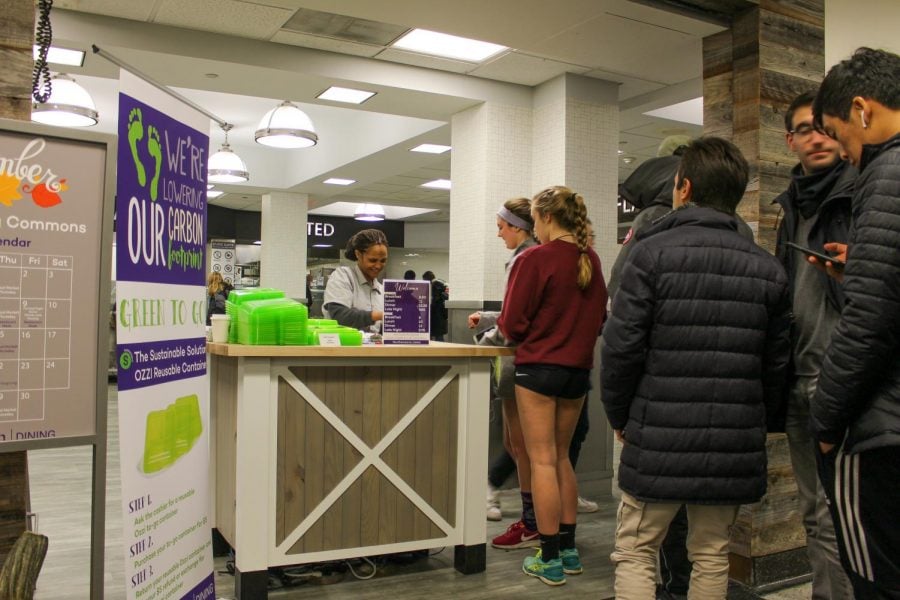Students raise money for commutes of workers still expected on campus during cold
Evan Robinson-Johnson/The Daily Northwestern
A Compass employee swipes NU students in to Sargent Hall. Northwestern’s chapter of Students Organizing for Labor Rights raised more than $2,500 overnight to pay for ridesharing services for Compass employees in the cold temperatures.
January 30, 2019
Students have raised more than $2,500 to support rides for service workers, who still have to show up to work on campus despite dangerously low temperatures.
The donations were gathered overnight by Students Organizing for Labor Rights, following the University’s statement on Monday that essential services –– including policing, facilities management and residence hall dining –– would still operate despite canceled classes. The group is using the money to call ride sharing services for workers’ commutes to campus so they can dodge the cold.
Weinberg junior Seri Lee, who helped organize the event, said they were frustrated when they heard the news that some University employees would be expected to work during the polar vortex and began looking for ways to provide help. When they first started advertising the campaign, they did not expect it to gain so much attention and were surprised by the amount of money raised.
“A lot of folks do genuinely care about the workers and are concerned about a central part of our community,” they said. “(They) want to thank them and appreciate them for taking care of us.”
It is “hypocritical” of the University to cancel school out of concern for its staff while still expecting service workers to be on campus, Lee added.
The University will provide accommodations for those working through the cold, according to an email from University spokesman Jon Yates. This includes opening dining halls to staff on duty and providing overnight stays on or near campus, he said. NU will also provide additional protective equipment suitable for the weather, he said.
The dining staff attendance policy is suspended, Yates added, and staff who use sick or vacation days will have their time off honored.
However, Weinberg junior Sharmain Siddiqui, who also helped organize SOLR’s donation campaign, said the University should have implemented more flexible attendance policies. Those without sick days have no other choice than to put themselves at risk by going to work, she said. She said the University should have looked into other options that didn’t require dining workers to be on campus, such as handing out prepared food.
“I can think of very easy ways to mitigate that while also not compromising the safety of service workers,” she said. “I guess it’s yet another example of the ways Northwestern chooses to marginalize the people on campus that they think don’t matter as much.”
Siddiqui reminded students to be kind to service workers, especially when they have traveled in the cold to serve the community. They are an “integral part of campus” because they look over students’ well being, she said.
The donation campaign’s success is also a reminder that students have the power to inspire change, Siddiqui said.
“Together, when we decide to take action, we are powerful and we can get things done,” she said. “We can provide real tangible support and change more vulnerable parts and people of this campus.”
Email: catherinekim2020@u.northwestern.edu
Twitter: @ck_525


